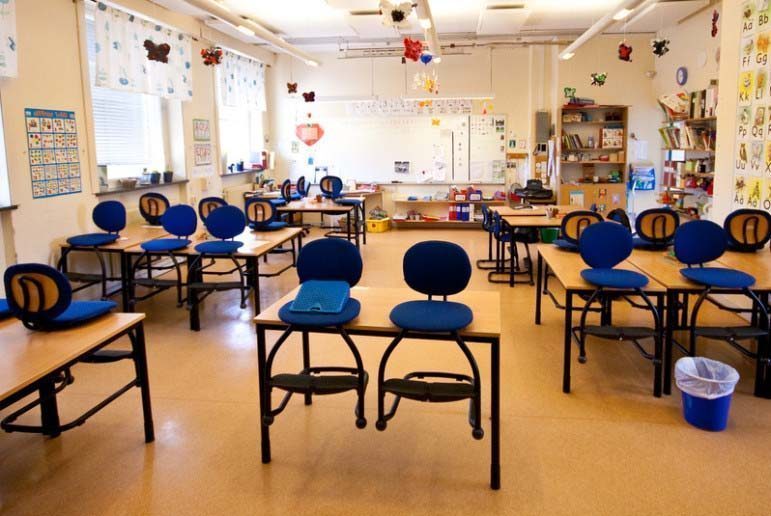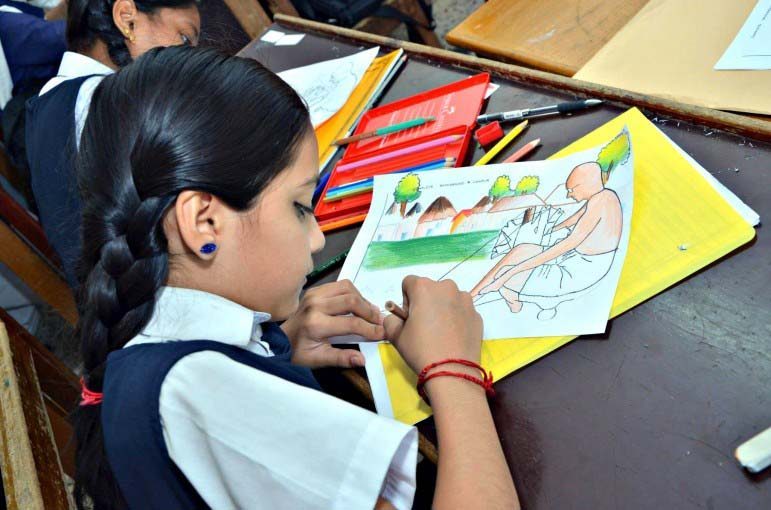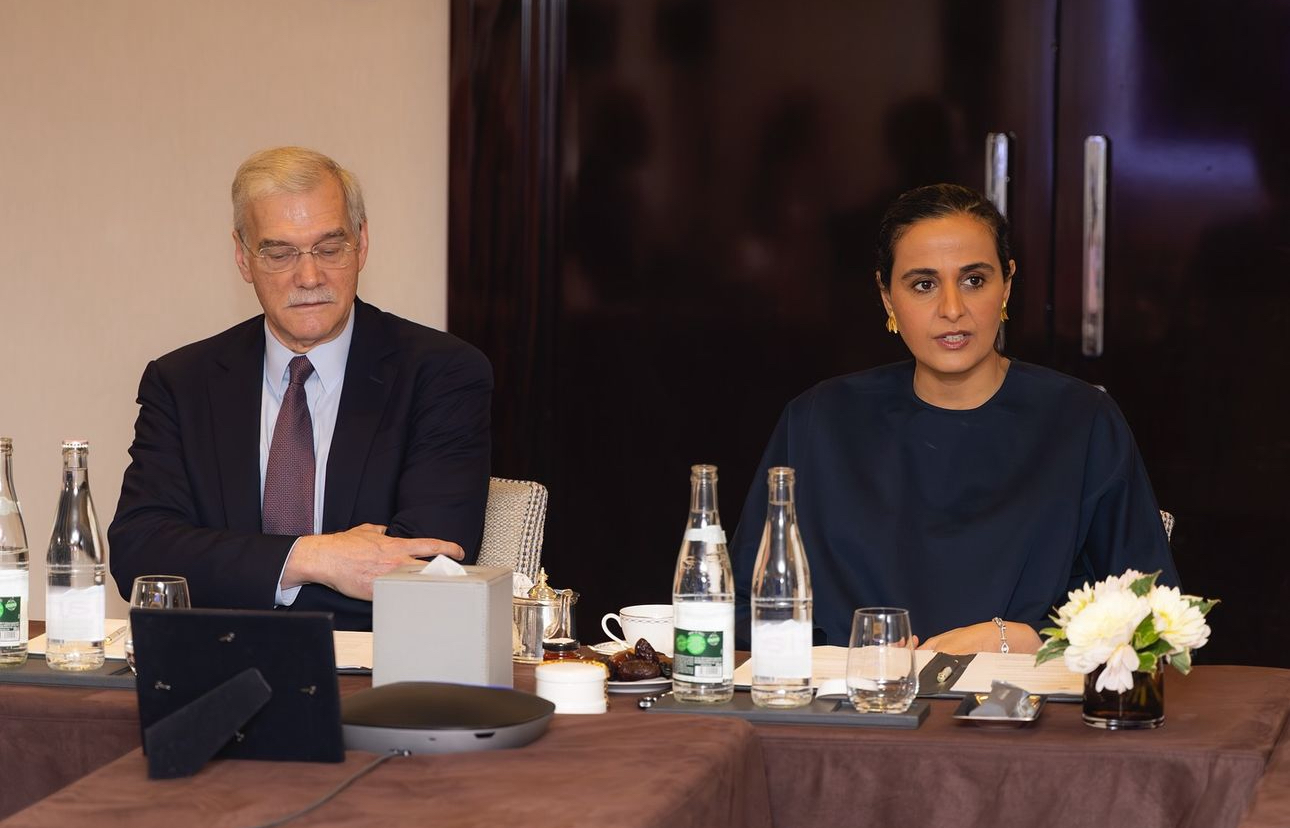
As thousands of parents vie unsuccessfully for a limited number of school places for their children in Qatar, the assessment process used by many privates schools is coming under fire.
Dozens of parents who spoke to Doha News are questioning how the selection process works. Many are also accusing schools of profiteering off of the stressful application process.
Pakistani expat Imran Zia told Doha News that he applied to eight British curriculum schools for a place for his three-year-old son. Each time, he paid a fee ranging from QR200 to QR500.
“Just imagine how much money they make just out of receiving applications,” he said. “Then, the second phase starts when some schools call for interview/assessment. Then again you have to pay an “assessment fee” of about QAR500 – QAR600 in every school, on top of the application fee already paid.”
The school place shortage comes at a time when Qatar’s population is booming to support infrastructure projects ahead of the 2022 World Cup.
Most expats here have no choice but to put their children in private school because of language barriers. Qatar’s public independent schools are conducted in Arabic, and are not open to all residents.
As international schools, including American, British, Indian and Filipino schools experience surging demand, many parents are facing the prospect of not having a school place for their children this coming fall.
Exacerbating the problem is a newly enforced age limit at nurseries, which are no longer allowed to accept children once they turn four years old.
Because of a shortage of kindergartens for kids who have aged out of nursery, many parents have been pushed to apply for places in private schools at least one year earlier than they would have preferred.
Qatar’s Supreme Education Council has said it is aware of the problem, and is working to build new schools in the coming years.
Varied policies
Many private schools charge application fees during the admissions process. But some schools say they wait until a child’s application undergoes greater scrutiny before asking for fees.
Speaking to Doha News, Park House English School (PHES) director Niall Brennan said his school received about 3,000 applications for less than 40 places this year.
But most of those applicants didn’t pay any fees, he added:
“We feel that it is unethical to charge for an application where there is no chance of a place being offered. Initial applications are free. Then, should a child come through to our Waiting Pool, which is about 10-15 children per year group where there is a chance of a place, the parents pay a charge because, only at this time, does their application go under detailed processing, and the charge is for this work.”
Other schools also told Doha News that the admissions process is labor intensive, and that fees cover staffing costs.
Chris Charleson, the headmaster of the International School of London (ISL) in Duhail, said there is a QR500 fee for initial applications because senior staff review them individually.
“That takes a significant amount of time” he said. “It’s not just a desk clerk deciding who goes on to the next stage or not. The assessment is included in the fee, and this fee comes no way near to covering the cost of the staff, and the amount of time senior staff give to the process. We’ve just covering internal costs.”
The school does not take application fees when the waiting lists are too long, he added.
Assessment confusion
In its recently released annual report, the Supreme Education Council classified schools here into three categories: international, private Arabic and independent (public).
There are also community schools, which are tied to various countries’ embassies and are almost always full.
Many of the international schools are taught in English, and heads of these institutions have told Doha News that proficiency in the language is a big factor in admissions.
Preferential placement for siblings of students already enrolled in the school and for the children of staff also take up many spots at most schools.

At ISL, other important criteria include previous school reports, teacher references and the parents themselves, Charleson said.
“To be honest, we also look carefully at the profile of the parents. We ask them what they think is important to do with their kids, how often they read to their children. Quite often it’s about the parents as much as it’s about the child. Often, parents contribute more to the educational achievement of their children than schools – research shows that.”
When the school issues its rejections, the headmaster added that they try to be straightforward about the process, explaining why they don’t believe the child would benefit from being at the school.
“That could be for a whole variety of reasons. It could be because they would not be able to access the curriculum in English, and they don’t have time to learn it. Or it could be that people want a different sort of school – ie, they’re looking for a British school, not an international school.”
However, not all schools are forthright about their criteria, or transparent about the application process.
Expat Nina said she has paid for school applications but received outright rejections with no explanation. Speaking to Doha News, she said:
“I paid QR250 for two applications, because I have twins. But all I got was a ‘regret’ email saying that my twins’ application had been unsuccessful. On what basis? They have not even seen my twins? I actually replied to their email asking how they made the selection, but they never got back to me.”
Other schools don’t appear to have an organized process. Melissa Rayyan, an American expat and former kindergarten teacher, told Doha News that she recently took her three-year-old child to an expensive international school for an assessment.
Describing her experience, she said:
“It was a crowded, intimidating classroom full of about 10 children, parents, a few nannies and two teachers. The assessment was very random and inconsistent. The teacher did not give equal time nor ask the same questions to all the students. At the end of 40 minutes, do they really think they can gauge 10 preschoolers? I think not!
Some children are very intelligent, but shy and quiet. What happens to them? The assessment felt like a competition of who can stand out the most, which made me really uncomfortable, because deep down in my heart, I know all children have things special and wonderful about them.”
Recruitment problems
Frustrations with the school application process are making it harder to recruit top talent to Qatar, many companies have said.
Skilled expats are continually in demand for some of the country’s most high-profile projects – like the new port, the Doha Metro, Sidra Medical and Research Center and the World Cup stadiums. Many employees working on these initiatives hope to bring their families with them when they move to Qatar.

But securing places at the schools of their choice has proved difficult. Dina, for example, is moving from the US to Doha next month with her husband and two young children, aged five and six years old.
She said she has not been able to find any placements for her kids, despite her company’s assurances.
“The school application process has kept me up many nights. We are attempting to enroll them in kindergarten and first grade for the fall. For one school, I set an alarm for the date kindergarten applications opened. When I attempted to submit the application, it said kindergarten was already full.
My company has a placement agreement with a second school, however after applying I was advised I would have to wait until they knew how many re-enrollments they had before they would review our applications. I can only hope we hear something soon. I have a one-way ticket to Doha in May.”
In the past, school heads have said that major companies have approached them asking for places for potential employees, only to be told that there are none available.
Foreign governments have also reached out to some schools asking for assistance, Charleson said:
“Some embassies have been in contact with us, saying companies from their countries are having difficulty bringing employees in who have kids. In response, we asked them to approach the authorities to ask them to help improve procedures for people trying to open new schools here, and for existing schools trying to expand.”
This trend is backed up by a recruitment consultant, who asked to remain anonymous. Working in the scientific field, he told us that many people he’d recruited had left Qatar before their contracts had ended, in part because of school placement issues:
“As you can imagine, education tends to run as a family priority for many of these candidates, and when they couldn’t find quality schools for their children, or were told that there were two year waiting lists and what not, people were unimpressed. It seems that the hassle of personal life problems, together with a lack of satisfaction with the work itself, led to great dissatisfaction and most people leaving.”
To deal with the problem, some schools are using a system of debentures, in which companies pay to reserve a certain number of places at a particular school. However, Charleson said ISL has decided not to go down this path “in the interests of equity.”
Hope on the horizon
With embassies and companies largely powerless to help, the onus to improve the situation appears to be on the SEC, which has said it is aware of the schooling crisis.
Last week, the council announced a rapid expansion of education provisions in the country, promising money for some 85 new schools in the next year, and saying it would encourage existing “distinguished” schools to expand into new campuses.
The Minister of Education Dr. Mohamed Abdulwahid al-Hammadi told the Gulf Times:
“The SEC gives all the due support for those willing to open new schools, and schools with distinguished records in particular are highly encouraged to expand their operations in the country.”
Speaking to the Peninsula, Ideal Indian School principal Syed Showkath Ali said newly enforced limits on the maximum number of students in classrooms has led to a shortage of places for many Indian expats.
Finding a new premise is the only way to accommodate everyone, he added:
“We currently have more than 5,900 students on our rolls but as per SEC guidelines we have to reduce the numbers to 4,338 which is the maximum allowed in the current premises. The SEC has asked us to look for new premises if we want to admit more students. So we have stopped all new admissions and are now searching for a new building to expand our facilities.”
Thoughts?







